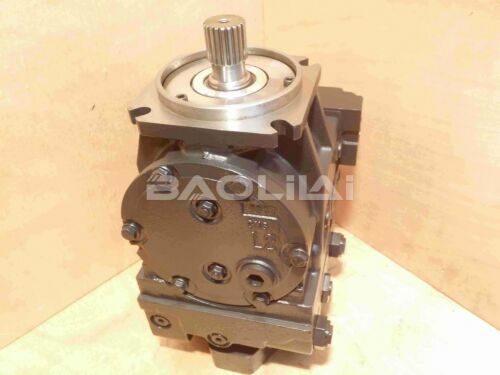Failure of the oil seal in the cylinder of the piston pump creates a safety hazard
The oil seal in the piston pump cylinder plays an important role in preventing oil leakage and ensuring the smooth operation of the pump. If the oil seal is aged or fails, it will have several negative effects on the plunger pump:
Oil leakage: The most common problem with oil seal failure is oil leakage from the pump cylinder. This can lead to reduced oil pressure, reduced efficiency, and even damage to other components in the hydraulic system.
Increased Wear: Oil seals also help reduce friction and wear between moving parts in the piston pump cylinder. When the oil seal fails, the metal parts of the cylinder can come into contact with each other, resulting in increased wear and the potential for damage.
Degraded performance: Oil seal failure can lead to degraded pump performance, which affects the overall efficiency of the hydraulic system. This results in reduced productivity and increased operating costs.
Contamination: If an oil seal fails, contaminants such as dust and debris can enter the hydraulic system, causing damage to other components and reducing overall system performance.
Safety Concerns: Failure of the oil seal in the piston pump cylinder can pose a safety hazard in some cases. For example, if the pump is used in a heavy-duty application such as construction or mining, sudden failure of the pump due to an oil seal problem could result in serious injury or damage.
Therefore, it is very important to regularly check and replace the oil seal in the piston pump cylinder to ensure the safe and efficient operation of the hydraulic system.
Aging or failure of oil seals in piston pump cylinders can have multiple negative effects on the pump and the entire hydraulic system.
First, it causes internal leakage of hydraulic oil, which reduces the efficiency and performance of the pump. This can cause the pump to work harder to maintain the required pressure, causing increased wear on the pump and other components in the system.
Second, internal leakage of hydraulic oil can also lead to cavitation, the formation and subsequent collapse of air bubbles in the fluid. This could damage the internal components of the pump, including the cylinder walls and pistons.

Third, the leakage of hydraulic oil will pollute the surrounding environment and cause harm to personnel and equipment. Contaminated hydraulic fluid can also damage other components in the system, including valves, filters and actuators.
Ultimately, a failed oil seal can cause a loss of hydraulic fluid in the system, resulting in complete pump failure. This can be dangerous if the pump is used in critical applications, such as the operation of heavy machinery or the control of critical processes.
Therefore, regular inspection and replacement of oil seals in piston pump cylinders is very important to avoid these negative effects and ensure reliable and efficient operation of hydraulic systems.
When the oil seal in a piston pump cylinder ages or fails, it can have several negative effects on pump operation:
Loss of oil: Damaged oil seals can cause oil to leak from the cylinders, reducing the overall oil level in the hydraulic system. This results in a drop in pressure and reduced hydraulic system performance.
Contamination: As the oil seals wear, dirt, debris and other contaminants can enter the cylinder. This causes the piston and other internal parts to wear out more quickly, leading to reduced efficiency and potential system failure.
Overheating: Worn oil seals can cause friction between the piston and cylinder, resulting in increased heat generation. This causes the oil to break down and lose its lubricating properties, leading to increased wear on the hydraulic system.
Seal failure: If the oil seal fails completely, it can cause the piston to seize or become stuck in the cylinder. This can damage the piston and cylinder, resulting in expensive repairs.
It is important to regularly inspect and replace worn seals as needed to prevent the negative effects of aging or failing seals in piston pump cylinders. It is also important to keep the hydraulic system clean and free of contaminants to reduce the risk of seal wear and tear. Regular maintenance and inspections help extend the life of your displacement pump and prevent costly repairs.
This article is published by the official website of Baolilai Hydraulics, please contact the author and indicate the source for reprinting:https://www.baolilai-pump.cn/news/338.html






